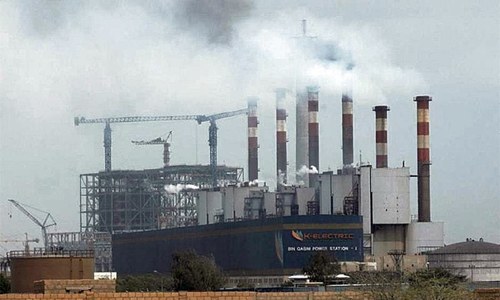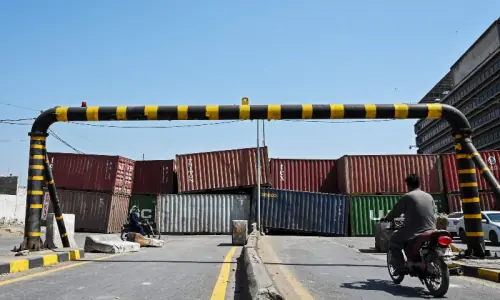Hafeez Sheikh, adviser to the prime minister on finance, revenue and economic affairs, on Friday said that efforts to improve fiscal and macroeconomic sectors are doomed to fail if public sector enterprises (PSEs) "continue to haemorrhage" the economy.
Sheikh, who was addressing a conference in Islamabad, regretted that in Pakistan, "public sector corporations [...] continue to dominate key areas of the economy" even though they do not perform.
"The public sector corporations bleed about Rs200 billion a year," he revealed. "The electricity sector alone causes about Rs3-4bn (in losses to the national treasury) every year. They [PSEs] have accumulated a circular debt of Rs1,600bn."
He went on to say: "Clearly any good efforts on the macroeconomic side, on the fiscal responsibility side [...] are subverted [...] we cannot have these major components not perform and continue to haemorrhage us."
He recalled that when he was minister for investment and privatisation, he had privatised 34 companies in different sectors, including telecom and banking, between 2003-2006. He suggested that that approach may be "the way forward".
Sheikh also talked about ongoing negotiations with the International Monetary Fund (IMF) for a bailout package and said they were moving forward in a positive direction. He said that the IMF package will help in bringing about development in the macroeconomic sector.
He was optimistic that securing an IMF package "will send positive signals" to countries as well as other financial institutions regarding Pakistan's commitment to bring about "fiscal discipline".
The economic adviser also said that the upcoming budget for fiscal 2019-20 will aim to achieve sustainable economic growth by addressing the gaps between current account deficit and fiscal deficit.
He further said that the policies of the Pakistan Tehreek-i-Insaf's government so far had led to an increase in exports and remittances and decrease in imports. Steps to increase revenue are also being taken, he added.
































